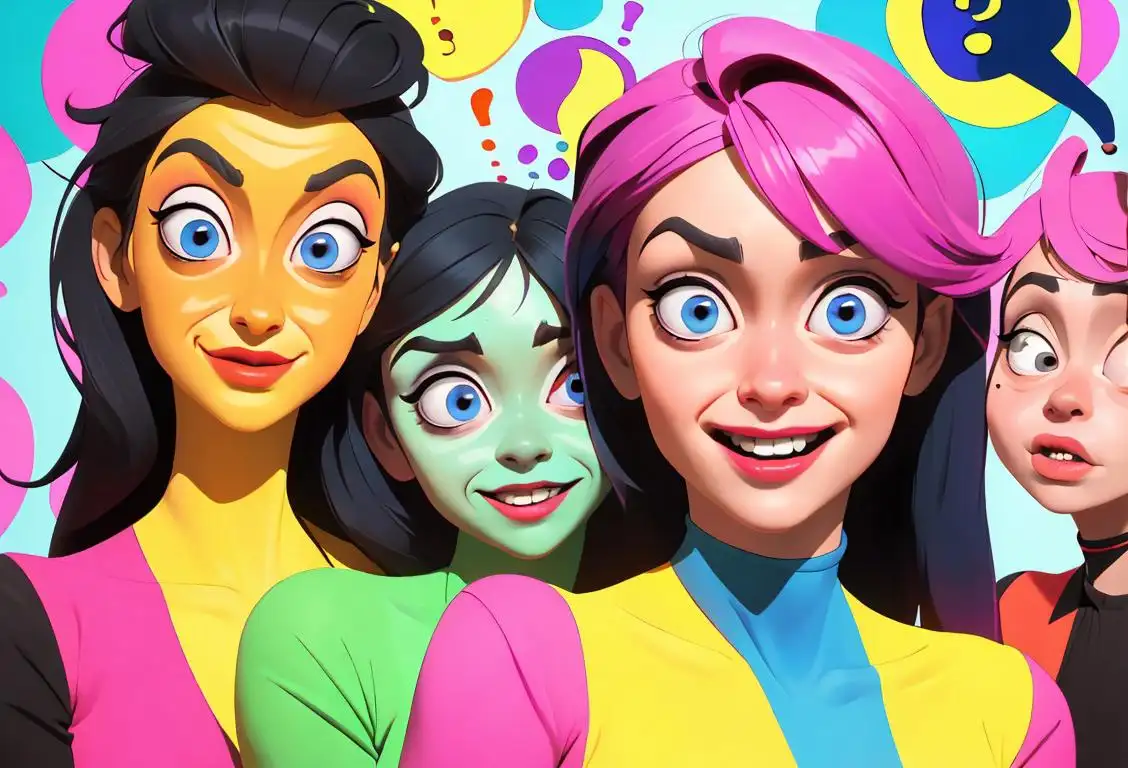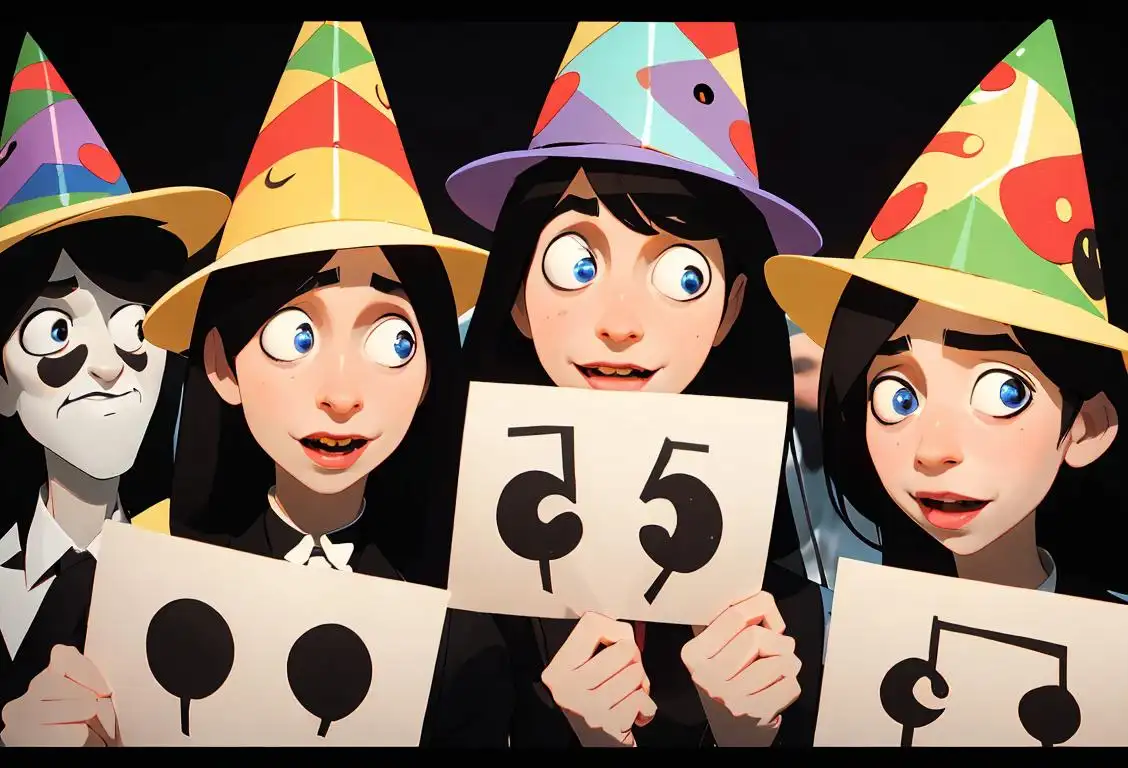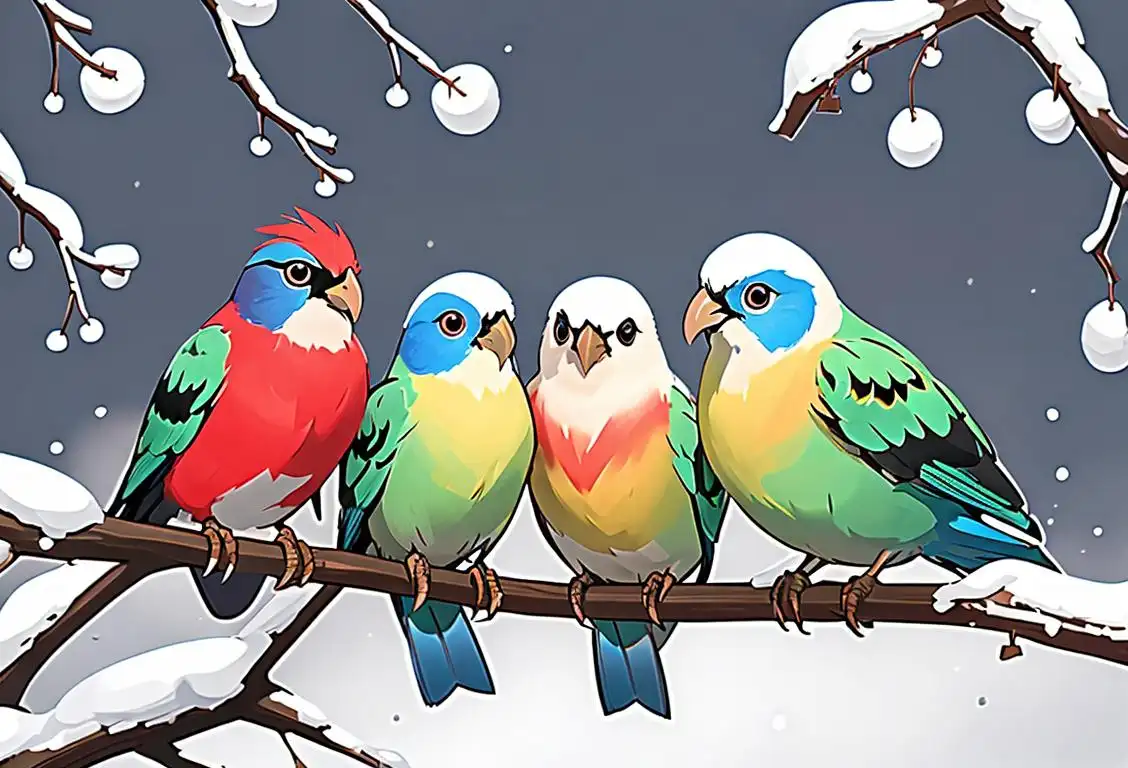National Ask A Stupid Question Day

Happy National Ask a Stupid Question Day! Today is the day to throw caution to the wind and embrace your curiosity, no matter how silly or absurd your questions may be. Whether you want to know why the sky is blue or why people put socks in their microwave (please don't try this at home), today is the perfect opportunity to ask away without judgment. So, let's dive into the wonderful world of stupid questions and celebrate this delightfully silly holiday!
When is Ask A Stupid Question Day?
It's national ask a stupid question day on the 30th September.
The Origins of National Ask a Stupid Question Day
Have you ever wondered how National Ask a Stupid Question Day came to be? Well, let's take a trip down the internet history lane and find out!
Believe it or not, this quirky holiday has its roots in a classroom. Back in the 1980s, two high school teachers named Alice Kahn and Jim Wescott noticed that students often held back from asking questions due to fear of sounding stupid or being laughed at. Determined to create a safe and encouraging environment for curiosity, they founded National Ask a Stupid Question Day on September 28th. Their aim was to encourage people to ask questions freely, regardless of how silly they might seem.
The idea behind the holiday quickly gained traction, especially in educational settings. Teachers and students alike embraced the spirit of the day and took the opportunity to ask all sorts of unusual inquiries. It wasn't long before the holiday spread beyond the classroom walls and into the wider online community, where it now thrives year after year on September 28th.
Celebrating National Ask a Stupid Question Day
Wondering how to make the most of this whimsical holiday? Well, fear not! We've got you covered with some fun ways to celebrate:
- Embrace your inner child: Remember how, as a curious child, you asked endless questions about everything around you? Well, today is the perfect excuse to tap into that uninhibited curiosity and let your imagination run wild.
- Host a Q&A session: Gather your friends, family, or colleagues and organize a lighthearted Q&A session. Encourage everyone to come up with their most outrageous and silly questions. You'll be amazed at the laughs and interesting conversations that arise!
- Explore the internet's weirdest questions: One of the best parts about the internet is its seemingly endless supply of bizarre and absurd questions. Dive into the depths of forums and question-and-answer websites to uncover some of the most puzzling queries humanity has ever asked.
- Spread laughter and kindness: Remember, the goal of National Ask a Stupid Question Day is not to belittle or mock others but rather to create an atmosphere of inclusivity and curiosity. So, make sure to keep the spirit light and spread laughter and kindness wherever you go.
Did You Know?
Did you know that asking seemingly stupid questions can actually lead to groundbreaking discoveries? Some of history's most significant scientific and philosophical insights were born out of seemingly silly queries. Who would have thought that pondering over the falling apple would lead Isaac Newton to formulate the laws of gravity?
History behind the term 'Ask A Stupid Question'
1910
The birth of the phrase
The term 'ask a stupid question' originated in 1910. It was initially used as a way to discourage people from asking unnecessary or obvious questions. The intention behind the phrase was to encourage individuals to think critically before asking for information that could easily be obtained through observation or common sense.
1950
Popularization in educational settings
In the 1950s, the phrase gained popularity in educational settings, particularly among teachers and educators. It was often used humorously to remind students that there are no stupid questions, emphasizing the importance of curiosity and active learning. By creating a light-hearted atmosphere, teachers aimed to cultivate an environment where students felt comfortable asking questions without fear of judgment.
1970
Pop culture references
During the 1970s, the phrase 'ask a stupid question' started to appear more frequently in popular culture. It was featured in movies, TV shows, and even became the punchline of jokes. Its continued usage in various forms of media helped solidify its place in everyday conversations and further normalized the idea that no question is truly stupid.
1990
The internet era and meme culture
With the rise of the internet in the 1990s, the phrase 'ask a stupid question' took on new life in online forums and chatrooms. It became a common response to sarcastically dismiss nonsensical queries or obvious questions. Memes featuring the phrase started to circulate, often accompanied by humorous images or captions. This online culture further propagated the notion that asking questions, even if they may seem trivial, is still valuable.
Present
Continued relevance and impact
In the present day, 'ask a stupid question' remains a popular idiom in many English-speaking countries. It has become a recognizable phrase used to encourage critical thinking, challenge assumptions, and remind individuals to approach information with curiosity. The phrase's longevity and ongoing cultural impact highlight the importance of embracing curiosity, learning, and encouraging questions no matter how they may be perceived.
Did you know?
Asking seemingly stupid questions can lead to groundbreaking discoveries!Tagged
fun educationFirst identified
28th September 2015Most mentioned on
30th September 2015Total mentions
446Other days
History Day
Grammar Day
College Decision Day
Punctuation Day
Teacher Day
Teacher Appreciation Day
Student Athlete Day
Bird Day
Education Day
Mathematics Day









